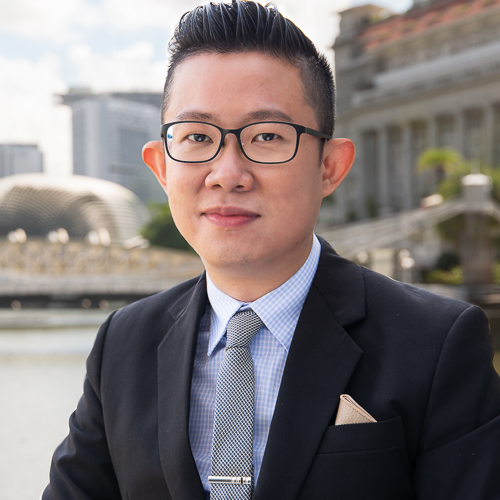On 5 October 2020, the Singapore parliament passed the International Arbitration (Amendment) Bill (the “Bill“), which was assented to the President on 5 November 2020, introducing two key amendments to the International Arbitration Act (Cap. 143A) (the “IAA“). The amendments aim to enhance the current framework in Singapore, so as to ensure that Singapore’s arbitration regime remains responsive and relevant to evolving needs.
In summary, the two key amendments to the IAA are as follows:
- to provide for the default procedure for the appointment of arbitrators in multi-party arbitrations; and
- to recognise that an arbitral tribunal, the High Court, or a Judge has powers to make orders or give directions to any party to an arbitration for enforcing any obligation of confidentiality.
The below sets out details of the two key amendments, the reasons behind such amendments, and the effect they will have on international arbitrations seated in Singapore.
Default procedure for the appointment of a panel of three arbitrators in multi-party situations
The leading arbitral rules such as the Rules of Arbitration of the International Chamber of Commerce (“ICC Rules“), the Arbitration Rules of the Singapore International Arbitration Centre (“SIAC Rules“), the Hong Kong International Arbitration Centre Administrated Rules (“HKIAC Rules“), and the UNCITRAL Arbitration Rules, contain provisions as to how the arbitrator(s) are to be appointed, including in multi-party disputes.
However, in situations where parties have not agreed upon a set of arbitral rules that address such issue, the appointment of the arbitrator(s) likely becomes a heavily contested issue. This is seen most often in ad hoc arbitrations that have not adopted a leading (or established) set of arbitral rules. In these scenarios, the Parties have to look to the procedural laws of the seat of arbitration to resolve any disagreement on the constitution of the arbitral tribunal.
Currently, the procedure for default appointment of arbitrators as set out in section 9A of the IAA only applies where there are only two parties to a dispute (i.e. a single claimant and a single respondent). There is no similar procedure in the IAA for arbitrations involving multiple claimants and/or respondents (i.e. where there are three or more parties).
The Singapore parliament has recognised that multi-party arbitrations are a growing trend, especially since cross-border transactions are becoming increasingly complex. In arbitrations involving multiple parties, it may be difficult for parties to collectively agree on an arbitrator, as the interests of the disputing parties may not necessarily be aligned. It is also not uncommon for respondents to drag their feet when nominating an arbitrator as a tactical move to delay or frustrate the arbitration proceedings. This results in parties incurring additional time and costs on procedural issues, which is wholly unnecessary.
The leading arbitral institutions and organizations recognised this conundrum in multi-party arbitrations and have addressed such issue by implementing specifically tailored procedures for appointment of arbitrators in multi-party disputes in the revisions of their rules for arbitration. For example, Articles 12(6) to (8) of the current ICC Rules (please refer to footnote) , Rule 12.2 of the current SIAC Rules, Article 8.2 of the current HKIAC Rules, and Article 10 of the current UNCITRAL Rules all adopt similar procedures for multi-party appointments of three arbitrators.
In this regard, clause 3 of the Bill mirrors the procedures adopted by these leading arbitral rules by introducing a new section 9B to the IAA. The new section 9B of the IAA provides for a default procedure for the appointment of a panel of three arbitrators in multi-party arbitrations. This section will only apply whe parties have not agreed on a procedure for the appointment of the arbitrator(s). Pursuant to the newly added section 9B, if parties are unable to come to an agreement on their choice of arbitrator(s), the appointing authority must, upon the request of any party, appoint all three arbitrators at its own discretion. In making the appointments, the appointing authority may, having regard to all relevant circumstances, re-appoint an arbitrator that has been appointed by the parties. This acts as a safeguard in case one party tries to sideline the choice put up by the other party in refusing to nominate an arbitrator.
Often, arbitration proceedings become unduly delayed due to procedural issues arising from the constitution of an arbitral tribunal. This newly introduced mechanism in section 9B lays down a clear process and timeline for the appointment of arbitrators, while at the same time, balances the importance of respecting party autonomy and the principles of equal treatment. It also reflects Singapore’s commitment in ensuring that arbitration proceedings are conducted smoothly, starting from constituting the arbitral tribunal expeditiously.
Content Authorship and Sources

Shaun Leong
Arbitration and Mediation Panelist at BIAMC
Equity Partner at Withersworldwide
Disclaimer: The articles published on the BIAMC platform are authored by members of the BIAMC Arbitration Panellist and do not necessarily reflect the views or policies of the Bali International Arbitration & Mediation Center (BIAMC). BIAMC is not responsible for the content of the articles and does not provide any warranty as to their accuracy or completeness. The responsibility for the content, opinions expressed, and any reputational impacts thereof rests solely with the individual authors. BIAMC serves solely as a platform to showcase the works of these authors. Readers are encouraged to approach each article with a discerning view and to consider the context and perspective of the individual author.